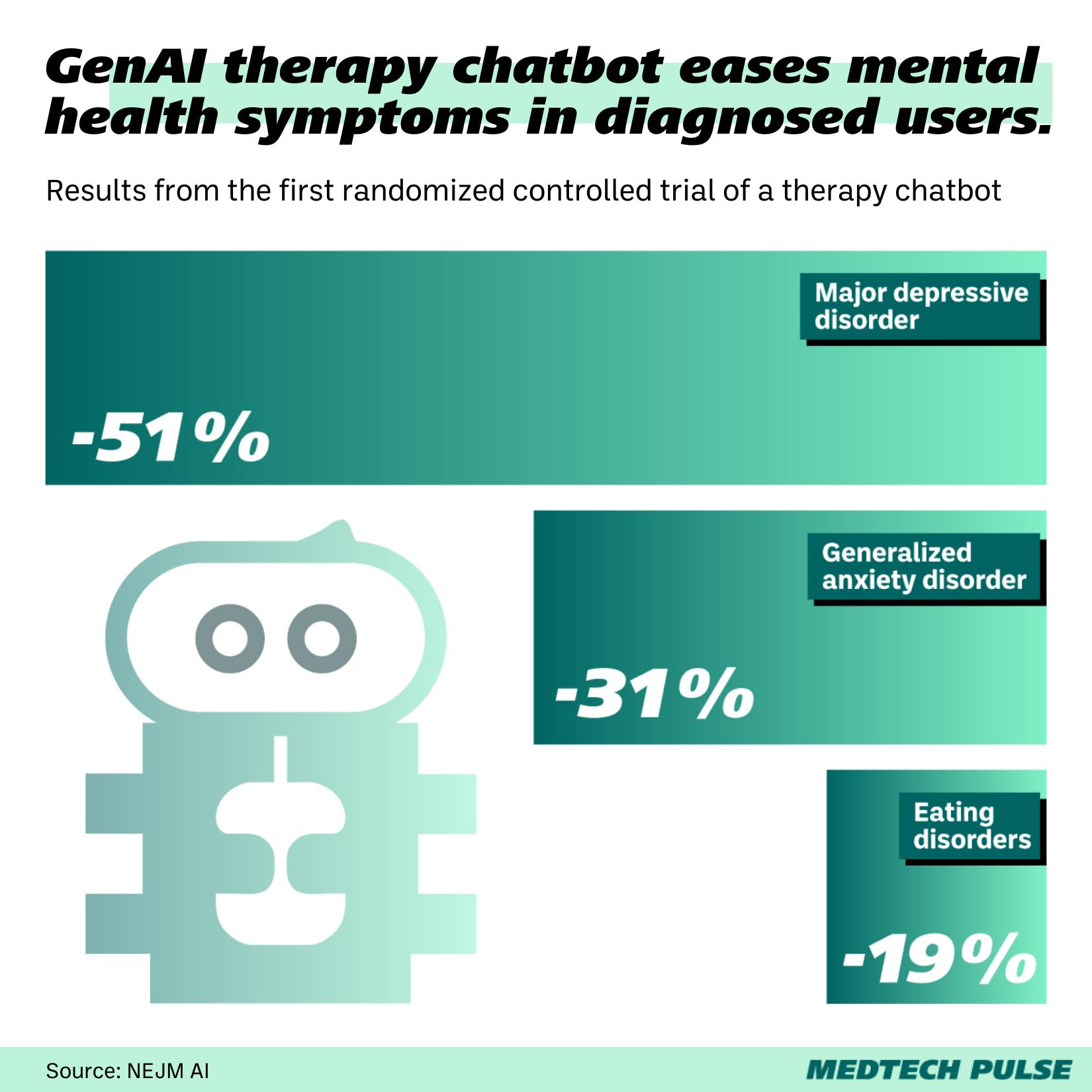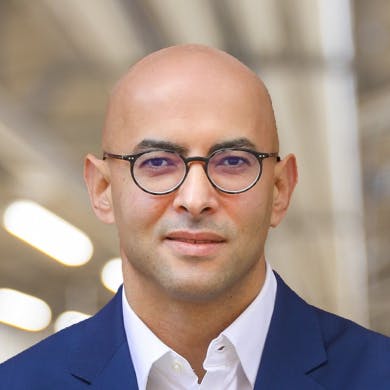Is psychiatry having a “ChatGPT moment”?
“Today officially marks psychiatry’s ChatGPT moment.”
This was the online proclamation from psychiatrist Eric Arzubi in reaction to the newly published study demonstrating a therapy chatbot’s performance to be comparable to standard therapy. The study has been getting a lot of buzz because it was a randomized clinical trial, the gold standard in clinical science.

This is the big endorsement generative AI has been waiting for from medicine, right?
Not exactly.
As with any medical innovation—but especially one as talked-about as AI—we have to read between the lines of the online hype.
In contrast to the idea of a “ChatGPT moment,” the editor-in-chief of the journal that published the study told STAT that he saw the study more like a “GPT 1.0 moment.” In other words, it’s an important step forward, but it’s not quite poised to change the industry overnight.
What I’m taking away from this news and the study itself: We need more such studies! This is a great start in helping us understand what medical LLMs can do.
But if you were to just read the online discourse, you might be tempted to think this serves as definitive proof that generative AI can replace clinicians.
Take another big recent news story about the use of clinical AI: the nurse protests in the U.S.
The gut reaction to this story is a polar opposite to the therapy chatbot one: Nurses are the most trusted profession, so their concern and opposition to AI use is a very concerning sign.
However, the real lesson again lies somewhere in between: Human nurses are not replaceable. Even when AI is used, it’s important to rely on human expertise, and clinician-patient interaction is key to managing many complicated cases.
We’ve had many promising signs of LLMs’ usefulness in medicine. As we keep developing it, we must keep evaluating it with science and by listening to the clinical professionals working with it.
And, as always, take everything you read online with a grain of salt. Let’s stay focused on the work ahead as we innovate toward the healthier world we all deserve.
